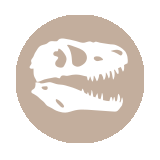Un Stegosaurus Ungulatus aurait été découvert au Portugal (source: dinodata).
En voici l'abstract:
Abstract: More than one century after its original description by Marsh in 1877, we report in this paper the first uncontroversial evidence of a member of the genus Stegosaurus out of North America. The specimen consists of a partial skeleton from the Upper Jurassic of Portugal herein considered as Stegosaurus cf. ungulatus. The presence of this plated dinosaur in both, the upper Kimmeridgian-lower Tithonian Portuguese record, and synchronic levels of the Morrison Formation of North America, reinforces previous hypothesis of a close relationship between these two areas during the Late Jurassic. This relationship is also supported by geotectonic evidences indicating high probability of an episodic corridor between Newfoundland and Iberian landmasses. Together, Portuguese Stegosaurus discovery and geotectonic inferences could provide a scenario with episodical faunal contact among North-Atlantic landmasses during the uppermost Kimmeridgian- lowermost Tithonian (ca. 148-153 Ma ago).
Discussion:
 15 269
15 269
 10
10
 Dernière réponse
Dernière réponse
Posté par Utahraptor
Posté par SupraTREX
Traduction siouplait 

Posté par Damien35
C'est bizarre je trouve pas la référence sur Naturwissenschaften:
Escaso, F; Ortega, F.; Dantas, P.; Malafaia, E.; Pimentel, N.L; Pereda-Suberbiola, X.; Sanz, J.L.; Kullberg, J.C.; Kullberg, M.C.; Barriga, F. (2007) New Evidence of Shared Dinosaur Across Upper Jurassic Proto-North Atlantic: Stegosaurus From Portugal. Naturwissenschaften
Escaso, F; Ortega, F.; Dantas, P.; Malafaia, E.; Pimentel, N.L; Pereda-Suberbiola, X.; Sanz, J.L.; Kullberg, J.C.; Kullberg, M.C.; Barriga, F. (2007) New Evidence of Shared Dinosaur Across Upper Jurassic Proto-North Atlantic: Stegosaurus From Portugal. Naturwissenschaften
Posté par Lolo
Une preuve de plus pour affirmer que le Kimmeridgien portugais et américain est identique ...
http://www.springerlink.com/content/ru4844423255jj22/
----------
Edité le 29/12/2006 à 16:33 par lolo
Posté par Damien35
Merci mon Lolo 
 j'ai bidouillé et ça a marché
j'ai bidouillé et ça a marché

 j'ai bidouillé et ça a marché
j'ai bidouillé et ça a marché
Posté par Cryolophosaurus
Si vous voulez j'ai un lien en portuguais
Posté par Carcharodontosaurus
Qui parle le portugais ?? 

Posté par Lexovisaurus
Je ne parle pas portugais mais dans certain cas je le comprend mieux que l'anglais (en cherchant un peut dans le latin l'espagnole et le français, on peut comprendre les grande ligne sans trop de problème). 
Donc si t'as le lien portugais tu peut le mettre stp, ça peut toujours servir.
Merci.

Donc si t'as le lien portugais tu peut le mettre stp, ça peut toujours servir.
Merci.
Posté par Lolo
Le spécimen s'appelle LHNB(CN) 1 et il est composé d'une dent, de cinq vertèbres cervicales, de cinq vertèbres dorsales, de côtes cervicales et dorsales, de trois vertèbres caudales, de chevrons, d'un fragment de l'ilion, du tibia droit, d'une fibula, d'un astragale, d'un calcanaeum, d'une plaque cervicale, et de plusieurs fragments de plaques dorsales.
Tout ça date de 153-148 MA.
Tout ça date de 153-148 MA.
Posté par Lexovisaurus
Merci beaucoup pour les détailles Lolo 

 Stego au Portugal
Stego au Portugal